American Journal of Industrial Medicine. Vol. 57, Iss. 1, January 2014
Investigation of respiratory and dermal symptoms associated with metal working fluids at an aircraft engine manufacturing facility
Riassunto
Background Excluding disinfectants, pyrethrins and pyrethroids are the pesticides used most commonly in and around homes. Respiratory effects and paresthesia are among the concerns about pyrethrin/pyrethroid exposures.
Methods Acute pesticide-related illness/injury cases were identified from the Sentinel Event Notification System for Occupational Risks-Pesticides Program and the California Department of Pesticide Regulation from 2000–2008. Characteristics and incidence rates were determined for acute pyrethrin/pyrethroid-related illness/injury cases. Logistic regression analyses were performed to determine odds of respiratory and dermal symptoms in persons with illness/injury following pyrethrin/pyrethroid exposure compared to persons with illness/injury following exposure to other pesticides.
Results A total of 4,974 cases of acute pyrethrin/pyrethroid-related illness were identified. Incidence rates increased over time, reaching 8 cases/million population in 2008. The majority of cases were low severity (85%) and 34% were work-related. Respiratory effects were the most common symptoms reported (48%). Risk of acute respiratory effects were significantly elevated among persons exposed only to pyrethrins (adjusted odds ratio [aOR] 1.79, 95% confidence interval [95% CI]: 1.49–2.16), only to pyrethroids (aOR 1.99 95% CI: 1.77–2.24), to a mixture of pyrethroids (aOR 2.36, 95% CI: 1.99–2.81) or to a mixture containing both pyrethrins and pyrethroids (aOR 2.99, 95% CI: 2.33–3.84) compared to those with illness arising from exposure to other pesticides. The most common factors contributing to pyrethrin/pyrethroid-related illness included exposure from spills/splashes, improper storage, and failure to evacuate during pesticide application.
Conclusions The magnitude of acute pyrethrin/pyrethroid-related illness/injury is relatively low but is increasing. As such, additional measures to prevent them are needed.
Articoli correlati che potrebbero interessarti
Investigating work-related neoplasia associated with solar radiation
Journal of Occupational and Environmetal Medicine. Vol. 65, Iss. 1, January 2015
Pesticide Risk Perception and Biomarkers of Exposure in Florida Female Farmworkers
Journal of Occupational and Environmental Medicine. Vol. 55, Iss. 11, November 2013
Health surveillance for occupational respiratory disease
Occupational Medicine (Oxford Journals). Vol. 63, Iss. 5, July 2013



